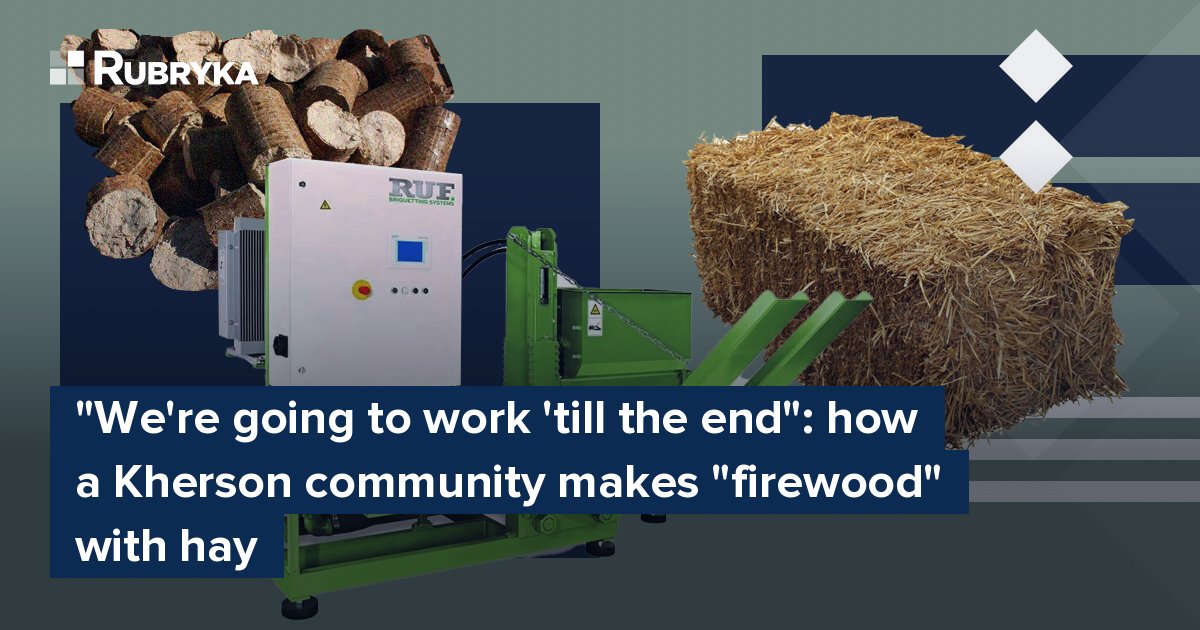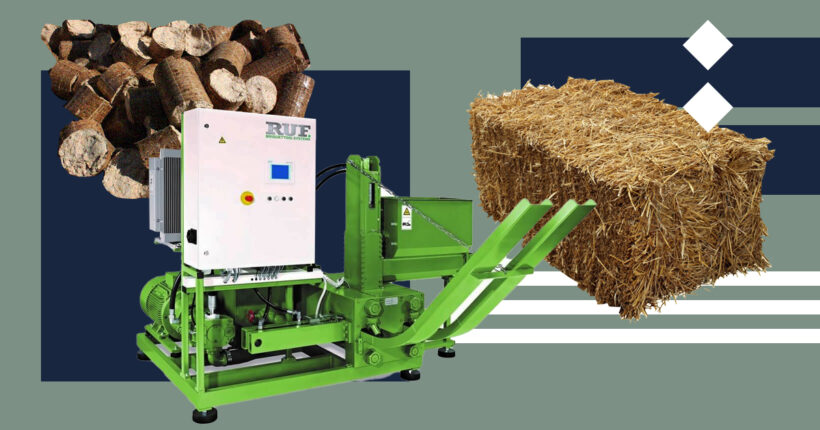
What is the problem?
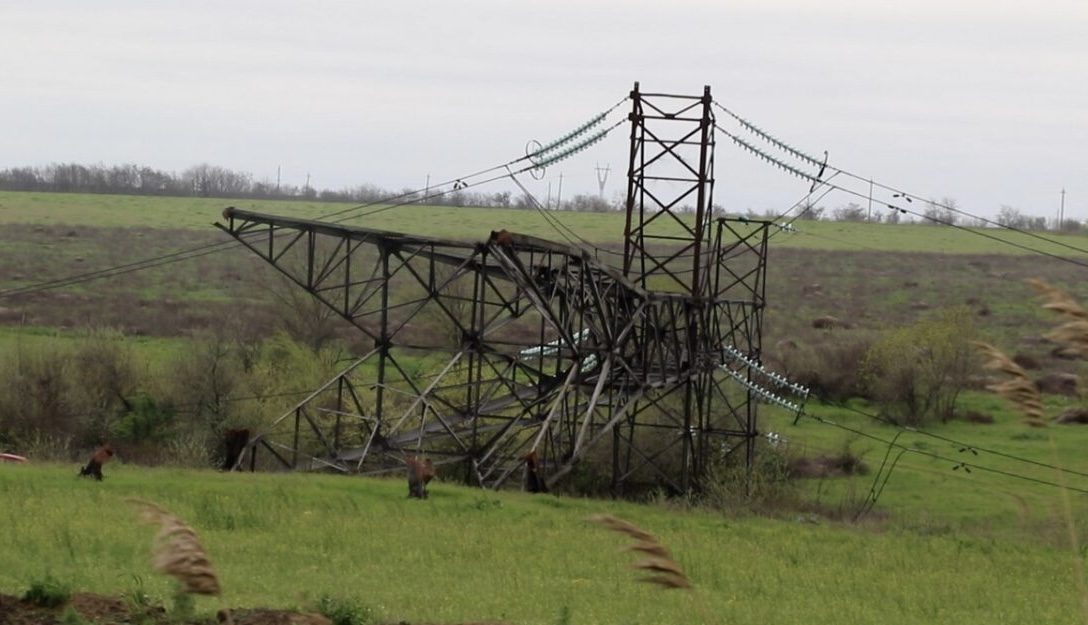
High-voltage power lines in Beryslav community destroyed by Russian forces
With the beginning of the full-scale war, the southern Beryslav city community was almost immediately occupied and remained under Russian control for eight months. Together with 16 other communities on the right bank of the Kherson region, the community was liberated in November 2022. Russian forces haven't left the city in peace since then and started brutally shelling it. The community's population has significantly decreased from 18,000 to 5,000 civilians. Russian troops also caused much damage to the community's communal facilities and infrastructure, causing not only a demographic crisis but also an energy downfall. High-voltage power lines were destroyed, and the gas transportation system was damaged after the destruction of the Kakhovka power plant.
What is the solution?
The Beryslav community is not giving up. Despite almost daily shelling, it continues not only to prosper but also to find new opportunities. On the eve of the heating season in fall, locals decided to create a partial alternative to coal and gas for heating municipal buildings by using local biofuel, which was hay.
The "Bery and Slav" NGO initiated the idea, supported by the U-LEAD with Europe. The organization has developed for good and is now implementing the project "Increasing the energy independence of the Beryslav city community by establishing the production of fuel briquettes," which involves organizing the production and launching an energy management system. Natalia Starodubets, head of the organization, says that even the most difficult conditions shouldn't stop you from striving to innovate your life, look for solutions, and implement projects that are useful to the community.
How does it work?
"Our mission is to move to our goal with faith"
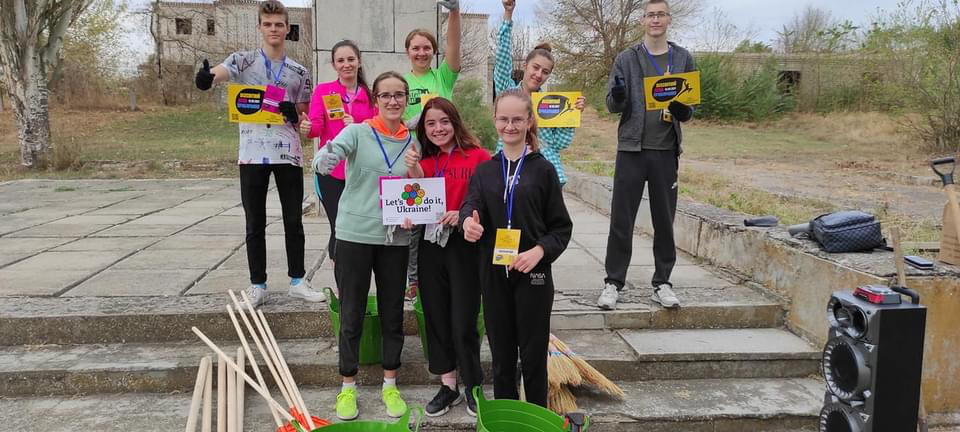
Cleanup organized by the "Bery and Slav" NGO. Pre-war photo, 2021
The "Bery and Slav" NGO was established in January 2021 to meet the needs of the youth of the local community. From the very beginning, it worked closely with the city's cultural and tourism department. The projects concerned educational activities, environmental practices, and tourism promotion. The organization held workshops and roundtables, represented the community, and won a national youth art project. The starting point of the new stage of cooperation between the NGO and the Beryslav territorial community was to create a modern youth center, but the war made its negative adjustments.
From the very first days of the full-scale war, the organization was actively involved in overcoming the humanitarian crisis caused by Russian forces, who had actually completely blocked the community with checkpoints. Members of the NGO purchased food to prepare free lunches for socially vulnerable people in the community and donated baby diapers for families with newborns. In April 2022, they decided to leave the occupation for Ukraine-controlled territory. They did not return to their home community until the liberation.
"Immediately after the right bank's de-occupation, including the Beryslav district, our team was eager to resume activities in the community," said Natalia Starodubets, head of the NGO. "We began to analyze the current situation in the Beryslav community and think about how we could be useful."
The NGO has prioritized the work on restoring the community's energy stability, taking into account the resources available in the community. The project "Increasing the Energy Independence of the Beryslav City Community by Creating Fuel Briquettes Production" developed by the organization proves that this problem can be partially solved by producing its own fuel briquettes and switching to heating municipal facilities and households with them.
The main partner of the NGO was the Beryslav City Military Administration, supported by experts from the U-LEAD with Europe Program, co-funded by the European Union and its member states Germany, Poland, Sweden, Denmark, Estonia, and Slovenia.
Biomass briquettes: versatile, environmentally friendly, energy efficient
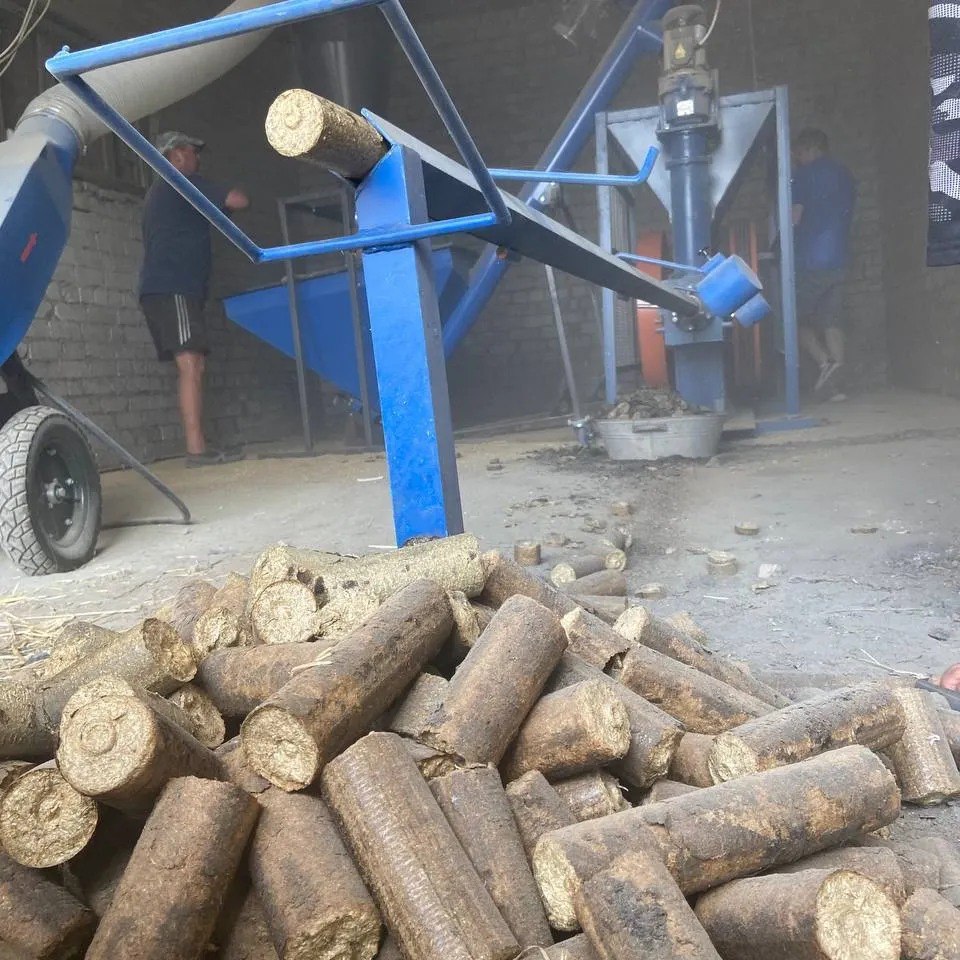
"Eurodrova" – biomass briquettes made from hay in the Beryslav community
The Beryslav community is predominantly agricultural. Many grain crops are grown here, and after the harvest, a large amount of hay mass is left over. Natalia Starodubets said farmers used to sell some of the hay for animal feed and bedding but then burn it.
"73% of all plant waste in Beryslav district is wheat waste (straw). This is a valuable raw material base to make biomass briquettes for heating municipalities and households, replacing expensive imported firewood and coal. We chose to produce briquettes because they are an improved biofuel with predictable quality (so-called Eurowood). They meet the requirements of the boiler equipment available in some community facilities while having better environmental performance than coal and conventional firewood. We can use briquettes in household stoves and solid fuel boilers with manual loading," said Natalia.
The head of the NGO says that the project includes many activities, most of which have already been implemented. For example, a briquette production line is not just a purchase but the organization of the entire process, including the selection of the line, its delivery, commissioning, purchase of straw, and the actual production of a trial batch of briquettes. Although the work was carried out in difficult conditions, as the systematic shelling did not stop for a day, and many areas in the community were still mined, the organization managed to solve the problems with both the delivery and adjustment of equipment and the purchase of raw materials.
"We were prepared for the difficulties, said Natalia, "We took it on and we have to work. We have a vision, we can do it."
Does it really work?
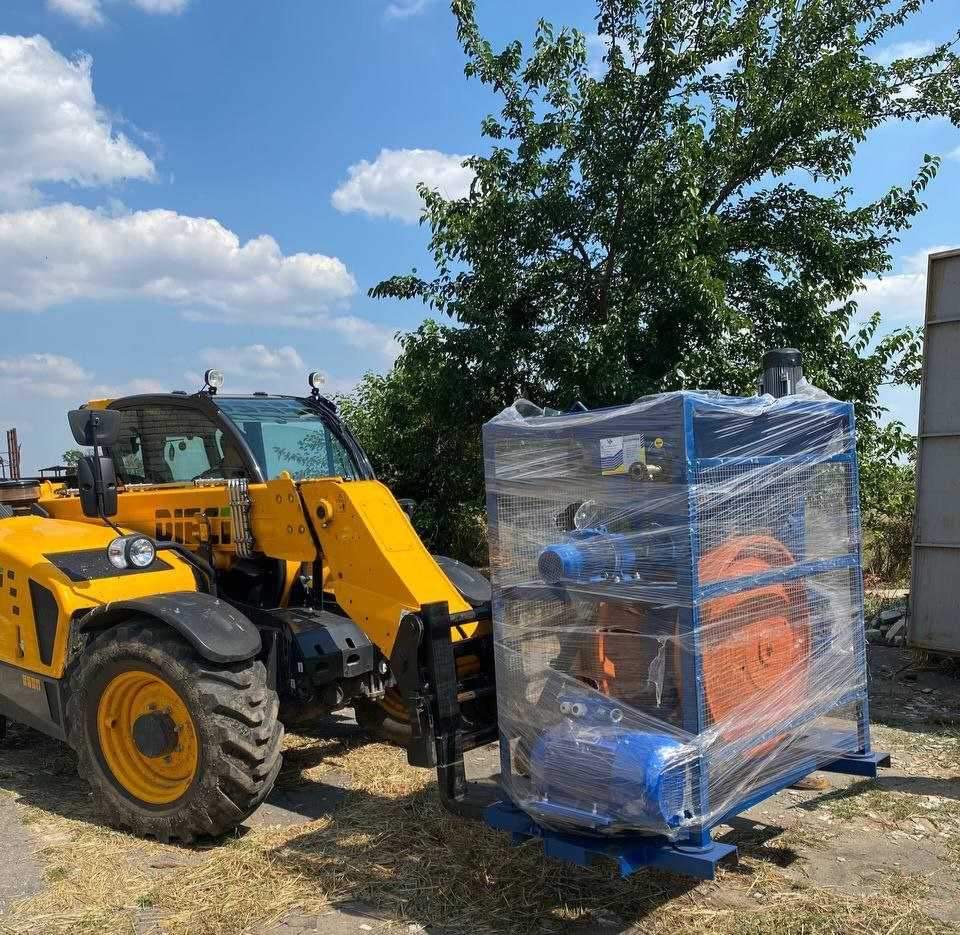
Unloading the purchased fuel briquette production line in the Beryslav community
Despite all the obstacles, in the second half of August 2023, the briquette production line produced its first batch of products. The exact location is not disclosed for security reasons, but the production equipment is already being prepared for transfer to the balance sheet of the Beryslav community and then to the utility companies.
The project founders regularly talk to residents of the Beryslav community about the benefits of heating their own households with fuel briquettes. A seminar on the basics of briquette production was organized for the local government, and a dialogue meeting on the prospects for briquette production in the Kherson region was held for local business representatives. Based on the results of the project's activities, the NGO works on methodological recommendations to justify the economic feasibility of the community's transition to briquettes and calculate the volume of production for budgetary institutions. The plan is to conduct an energy audit of one communal building in the community with an expert opinion on the building's condition, an energy efficiency certificate, and recommendations for implementing energy-saving measures and energy monitoring training for employees of communal institutions.
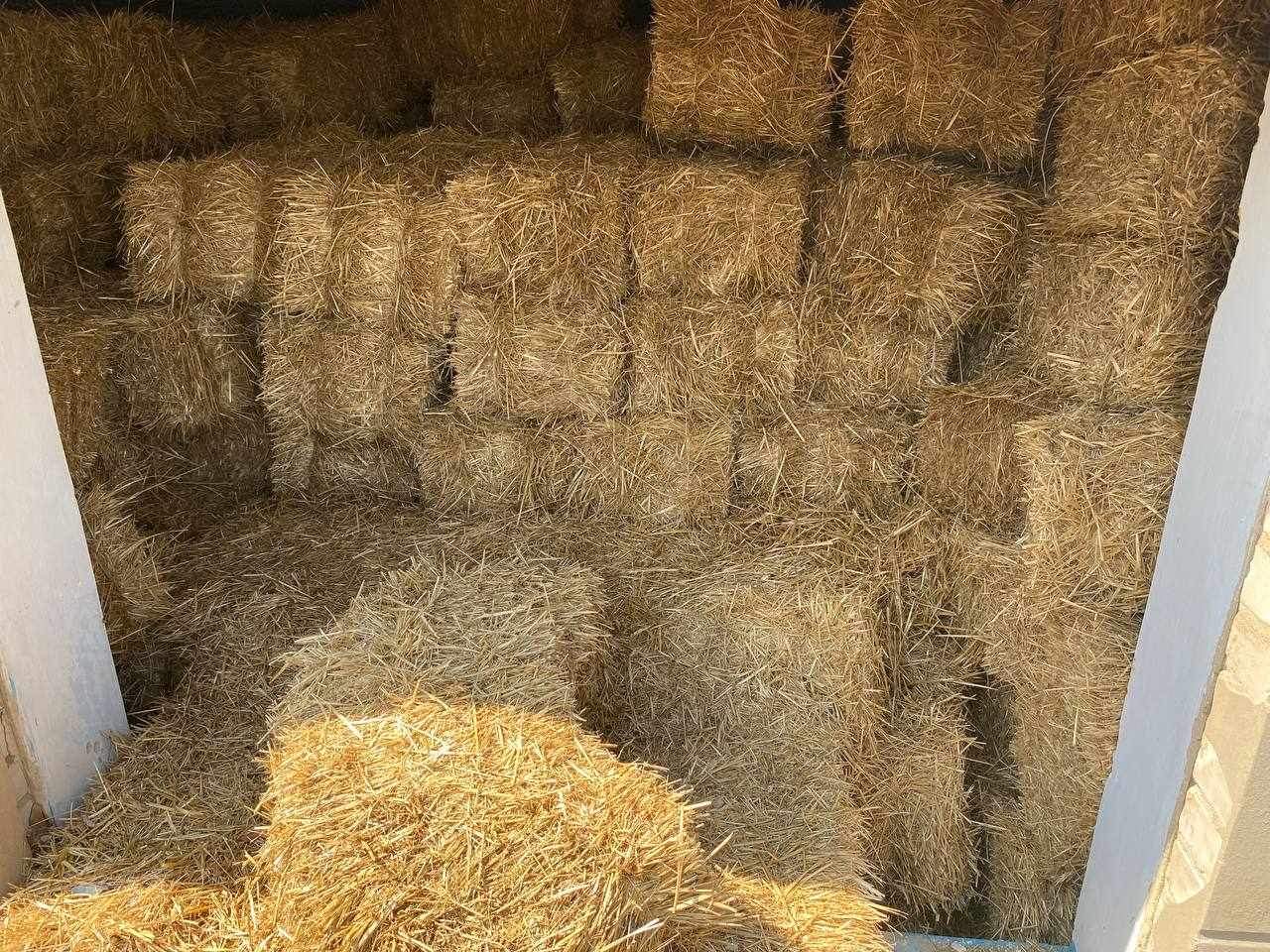
Straw for the production of biomass briquettes
The organization also managed to overcome a challenge with the purchase of raw materials caused by the realities of wartime. In the future, when the community's farmers increase their activities, they can supply significant volumes of hay for briquettes. The founders calculated that local farmers have sufficient resource potential to provide raw materials for the municipal enterprise producing fuel briquettes.
"We are grateful to the "Bery and Slav" NGO and U-LEAD with Europe," says Olena Tikhonova, Deputy Head of the Beryslav City Military Administration, "Last winter was extremely difficult for the community due to damage to substations, electricity, and gas networks. That's why we readily supported this project. It will help solve at least some of the heating issues in our community this heating season."
The purchased fuel briquette production line has a capacity of 300 kg of finished briquettes per hour and can operate around the clock. "Eurodrova" will be used to heat one of the community's municipal institutions this winter. This will help ensure the community's energy independence from traditional energy resources (firewood, coal, gas).
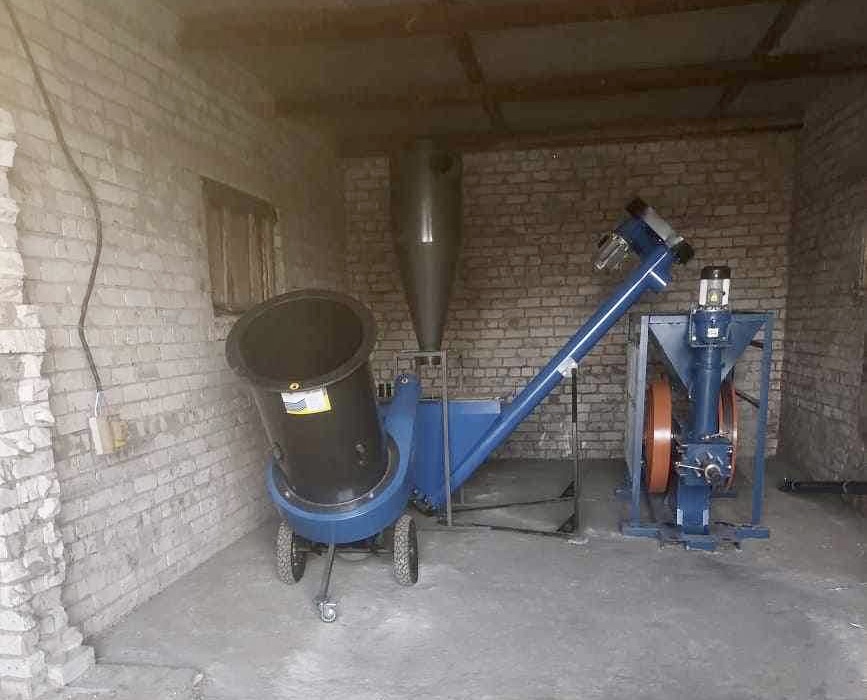
The briquette production line is being prepared for launch
The use of straw briquettes has many advantages in terms of environmental protection, sustainability, economy and community development:
- Straw briquettes have a high combustion temperature, 1.5-2 times higher than that of firewood, and due to their low moisture content, they have high heat transfer, which is almost similar to hardwood firewood.
- They have good combustion: duration and uniformity of combustion.
- The ash content of briquettes is several times lower than coal, which has a 30% rate.
- During combustion, they do not emit harmful substances, and the ash can be used as fertilizer.
- The briquettes do not pollute the room, do not spark, and emit almost no smoke.
- They are compact and easy to transport and do not deteriorate during long-term storage.
- They are cost-effective. The price of briquettes is three times lower than coal.
- The use of local eco-raw materials reduces dependence on imported raw materials.
- Farmers can earn additional income from selling hay.
- The raw material for briquettes is renewed every year.
"One person is enough to start production," added Natalia, "Then everything will depend on the level of workload of the line, but we need up to three employees. This is also a pro for the community, as the job situation has become very difficult due to the full-scale war; there are very few of them."
Even more useful solutions!
A complicated situation, such as instability and hostilities near the community, can pose challenges and inspire the community to find creative and innovative approaches to solving problems, Natalia added. It is important to remain open to new ideas, cooperate with partners, and seize opportunities for change and improvement, even in the most difficult conditions.
Starodubets said there are several other reasons why the implementation of new projects is important in times of war:
- Stimulating development. Introducing innovations and implementing new projects helps to build a community even in negative circumstances. This contributes to economic growth, job creation, and infrastructure development.
- Search for alternative ways of development. In times of war and instability, conventional ways of economic and social development may be limited. Innovations help to find alternative ways to achieve goals and solve problems.
- Promoting resilience. Implementing new projects and introducing innovations can help the community better cope with the challenges and risks associated with changes in the social, economic, and political environment.
- Boosting morale. The active search for and implementation of new ideas and projects can affect the mood and morale of the community. This helps to maintain a positive attitude, promotes unity and joint efforts.
- Sharing knowledge and skills. Implementing new projects often requires the acquisition of new knowledge and skills. This can contribute to the education, professional growth, and development of local staff.
- Attracting resources. Implementing innovations can attract the attention of investors, international organizations, and other third-party partners, which can help attract the necessary resources for project implementation.
- Restoring faith in the future. Introducing innovations into community life in the context of military conflict can help restore faith in the future, hope for the best, and the belief that the community shapes its own destiny.
Natalia Starodubets admits that for her as the head of the organization, this project was a big challenge, requiring her to make difficult decisions and solve problems that simply did not exist in the community before the war.
"I am sure that this project will definitely be sustainable because our team strives to ensure that the development that has begun does not stop but continues on a long-term basis. We see it as the beginning of a new stage, which includes new goals, initiatives, and opportunities for sustainable community development, said the head of the organization. "Our NGO is actively involved in creating the Beryslav Community Recovery Plan. We have created and included a significant portion of project cards for future restoration in this plan. There are a lot of projects. We dream of restoring and rebuilding our chestnut town. To see it blooming again, with smiling people and new opportunities."
This article is published as part of the "Voice of Communities" campaign, which is part of the U-LEAD with Europe: Ukraine – Local Empowerment, Accountability, and Development Programme, co-funded by the EU and its member states: Germany, Poland, Sweden, Denmark, Estonia, and Slovenia to support Ukraine on its path to strengthening local governance. U-LEAD promotes transparent, accountable, and multi-level governance in Ukraine that is responsive to the needs of citizens and empowers communities.
Newsletter
Digest of the most interesting news: just about the main thing


